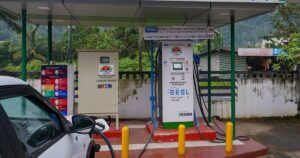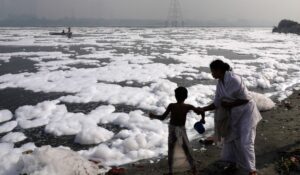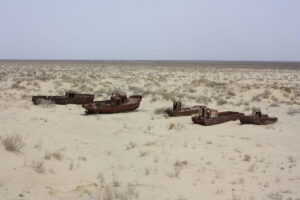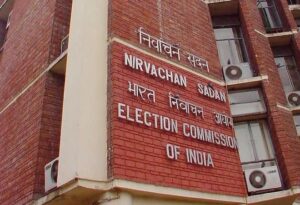Great Nicobar Project A “Grave Misadventure”: Sonia Gandhi
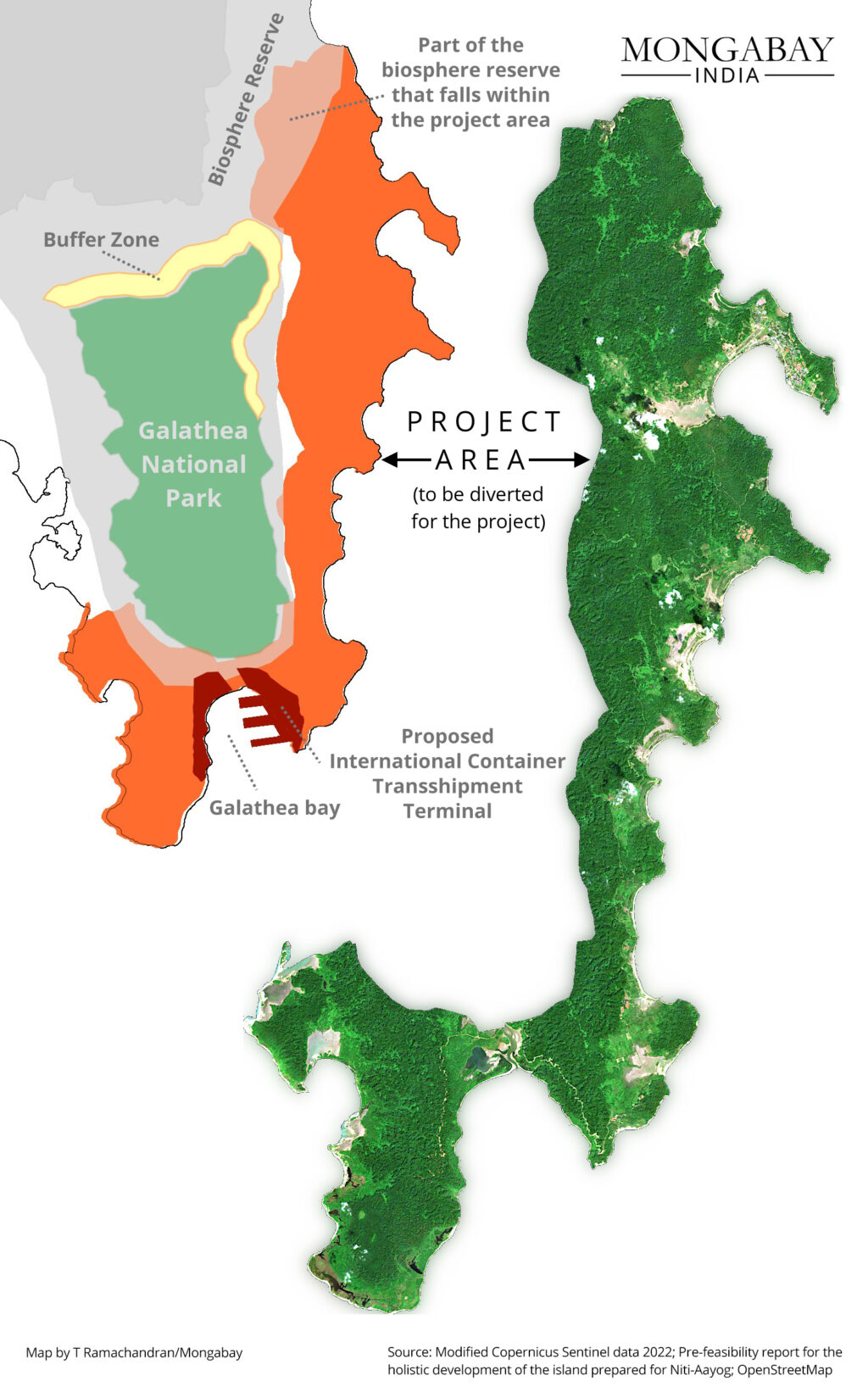
(L) A map of Great Nicobar Island. Highlighted in orange is the project area. (R) The project area (Map by T. Ramachandran/Mongabay)
In a strongly worded op-ed published on 8 September in The Hindu, Congress Parliamentary Party chairperson Sonia Gandhi reiterated her party’s firm opposition to the Union government’s ambitious Great Nicobar Project. Terming the Rs 72,000-crore mega-infrastructure plan a “grave misadventure,” Gandhi warned that the project threatens to displace vulnerable tribal communities, devastate an ecologically fragile habitat, and violate multiple constitutional and environmental laws.
The Great Nicobar Project aims to transform the Great Nicobar Island into a strategic and economic hub. The plan includes constructing a transshipment port, an airport, a power plant, and a township. The Centre promotes the project as a vital step for national development and security. However, critics, including Gandhi, have raised serious concerns about the human and ecological costs of such large-scale development in a pristine and biologically diverse region.
Tribal Rights Under Threat
Great Nicobar Island is home to two indigenous tribes—the Nicobarese and the Shompen, the latter classified as a Particularly Vulnerable Tribal Group (PVTG). Gandhi emphasized the deep connection these communities have with the island’s biodiversity, noting that they have “coexisted with nature for centuries and depend heavily on the island’s rich biodiversity for their livelihoods.”
She highlighted the displacement already suffered by the Nicobarese following the 2004 tsunami and warned that the project would lead to their “permanent exclusion from their native land.” The Shompen, she added, “will find themselves cut off from their ancestral lands and unable to sustain their social and economic existence.”
Gandhi accused the government of bypassing essential safeguards designed to protect tribal interests. “Neither the Tribal Councils of Great and Little Nicobar nor the National Commission for Scheduled Tribes were meaningfully consulted before approving the project,” she wrote. She also revealed that a No Objection Certificate (NOC) initially obtained from the local Tribal Council was later revoked, with the council claiming they were rushed into signing without full understanding. “The government continues to disregard this, rather than engage the community in fresh dialogue,” Gandhi lamented.
“Our collective conscience cannot, and must not, stay silent when the very survival of the Shompen and Nicobarese tribes is at stake,” she urged. “We must raise our voice against this travesty of justice and this betrayal of our national values.”
Environmental Devastation and Legal Violations
The environmental consequences of the project, Gandhi warned, would be catastrophic. Great Nicobar Island is part of a UNESCO-designated biosphere reserve, boasting dense forests, coral reefs, endangered turtle nesting grounds, and rare species such as the Nicobar long-tailed macaque. The plan to fell 8,50,000 trees across 15% of the island’s land, she said, would cause “environmental devastation [that] is hard to even imagine.”
She described the island’s ancient rainforest as “rich, undisturbed and deeply connected to the lives of its tribal inhabitants,” and condemned the compensatory afforestation plan as a “farce.” The government’s proposal to plant replacement trees in Haryana, thousands of kilometers away, was “laughable” and “defies all ecological logic,” Gandhi wrote.
Questioning the quality of environmental impact assessments, she cited scientists’ complaints that key studies were conducted during the off-season and used drone technology “ill-suited” to capture the region’s complex wildlife. “Our commitment to future generations cannot permit this large-scale destruction of a most unique ecosystem,” she wrote.
Rushed Process and Ignored Warnings
Gandhi criticized the government’s “casualness and arrogance” in environmental governance, pointing out that construction has already begun in areas classified as CRZ IA, where activity is strictly prohibited due to coral reefs and turtle nesting grounds. This is despite ongoing litigation before the National Green Tribunal.
She also highlighted the exclusion of the Shompen tribe from the Social Impact Assessment (SIA) conducted under the Right to Fair Compensation and Transparency in Land Acquisition Act, despite them being among the most affected. “The country’s tribal communities should not be made to pay the ultimate price for the vanity of the country’s ruling elite,” Gandhi asserted.
Drawing lessons from past tragedies, she referenced the 2022 Vaishno Devi stampede, where an inquiry committee’s findings were never made public, implying a lack of transparency and accountability in government processes.
A Call for Inclusive and Sustainable Development
In her concluding remarks, Sonia Gandhi urged the government to reconsider the project and engage all stakeholders in fresh consultations. She called for development that “respects both ecological integrity and human rights,” emphasizing that the issue transcends ecology to become a moral imperative.
“This is not just an ecological issue; it is a moral one. The people of Great Nicobar deserve a future shaped by inclusion and respect, not imposed from above,” she wrote passionately. “When we destroy these islands, we destroy our own moral compass.”
She also appealed to civil society, environmental groups, and citizens to oppose the project and defend the rights of tribal communities.
Government Response and Ongoing Opposition
As of the op-ed’s publication, neither the Ministry of Environment, Forest and Climate Change (MoEFCC) nor the NITI Aayog—key drivers of the project—had issued an official response. The project continues to face opposition from environmentalists, tribal rights activists, and a growing section of civil society. Some demand a complete halt, while others call for a democratic re-evaluation.
Observers warn that political fallout may intensify if further evidence emerges of legal violations or displacement of tribal populations. Meanwhile, the Supreme Court is expected to hear petitions challenging the ecological clearances granted for the project later this month.
Sonia Gandhi’s op-ed underscores the complex and contentious nature of the Great Nicobar Project, highlighting the urgent need to balance development with the protection of tribal rights and ecological heritage. As she poignantly stated, “Our collective conscience cannot, and must not, stay silent” in the face of such a “travesty of justice.”

